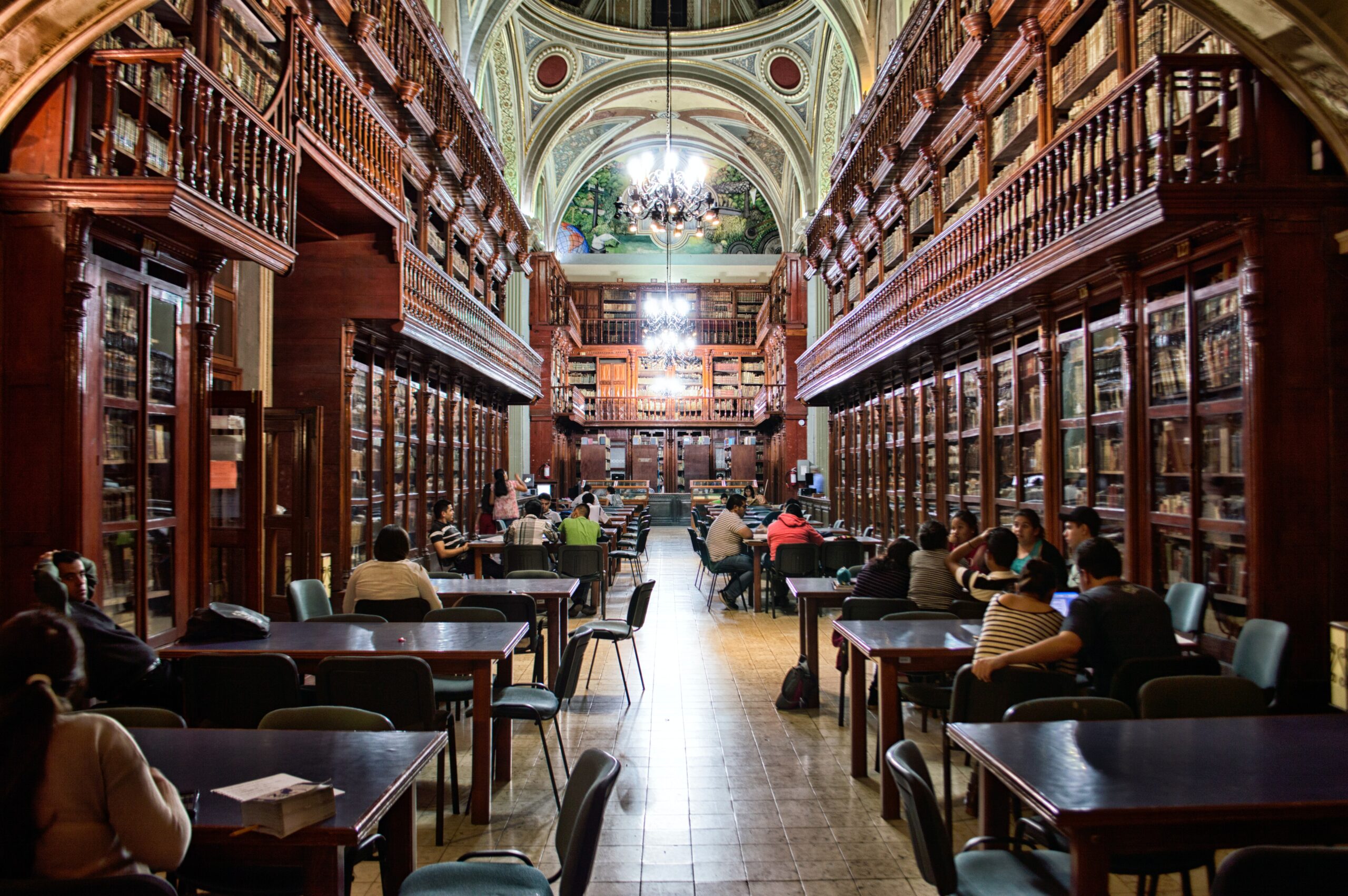Library history / Library history in India
India has a rich history of libraries, dating back to ancient times. Some of the earliest libraries in India were established in the 2nd century BCE by the Maurya Empire, which was one of the largest empires in the world at the time. These libraries were not only places to borrow books, but also served as centers of learning and intellectual pursuit.
One of the most famous libraries in ancient India was the Nalanda Mahavihara, a Buddhist monastery and university located in Bihar. Established in the 5th century CE, the Nalanda Mahavihara was one of the world’s first residential universities, and its library was said to contain over 9 million manuscripts on a variety of subjects.
During the Mughal period, libraries were also established in various parts of India. The famous Khuda Bakhsh Oriental Library in Patna, which was founded in 1891 and contains a vast collection of rare manuscripts and books on various subjects, including history, literature, and science.
In modern times, India has a large number of public and private libraries, including the National Library of India in Kolkata, which is the largest library in the country. There are also many university and college libraries, as well as specialized libraries for different subjects, such as the Indian National Science Academy Library in Delhi, which contains books and manuscripts on science and technology.

Importance of a Library
- Libraries provide access to a wide range of books and other materials, enabling people to learn and expand their knowledge.
- Libraries serve as an important resource for students, providing access to books and other materials that may not be available at their schools or colleges.
- Libraries provide a quiet, safe and conducive environment for studying and learning, making them an ideal place for students to focus on their studies.
- Libraries serve as a hub for the community, providing a space for people to gather, socialize and engage in cultural and educational activities.
- Libraries provide access to computers and other technology, enabling people to gain digital literacy skills and access information online.
- Libraries serve as an important resource for people of all ages, providing materials and services that cater to a wide range of interests and needs.
- Libraries provide access to books and other materials in different languages, making them an important resource for people who do not speak English or prefer to read in their own language.
- Libraries promote reading and literacy, encouraging people to discover the joy of reading and gain valuable knowledge and skills.
- Libraries provide a space for people to access information and resources that they may not be able to afford on their own, such as magazines, newspapers and e-books.
- Libraries serve as a valuable resource for researchers and scholars, providing access to a wealth of knowledge and information on a wide range of subjects.
- Libraries provide a space for people to engage in lifelong learning, offering a range of programs and services that cater to different interests and needs.
- Libraries serve as a valuable resource for people who may not have access to books and other materials at home, such as low-income families and individuals living in remote areas.
- Libraries promote the preservation of cultural heritage and knowledge, providing access to books, manuscripts and other materials that are important for understanding our past.
- Libraries provide a space for people to learn and grow, offering a range of programs and services that cater to different ages, interests and abilities.
- Libraries promote the development of critical thinking and problem-solving skills, encouraging people to explore different perspectives and ideas.
- Libraries provide access to a wide range of information and resources, enabling people to make informed decisions and become active and engaged members of their communities.
- Libraries serve as an important resource for people with disabilities, providing access to materials and services that cater to their specific needs and abilities.
- Libraries promote the enjoyment of reading and learning, encouraging people to discover new interests and passions and explore their full potential.
- Libraries serve as a valuable resource for people who may not have access to books and other materials elsewhere, providing a vital source of information and knowledge.
- Libraries contribute to the overall development of society, promoting education, literacy and lifelong learning and enabling people to become more informed and engaged members of their communities.

Famous libraries in India
- National Library of India – Kolkata
- Connemara Public Library – Chennai
- Central Library of Indian Institute of Technology – Mumbai
- Maharaja Sayajirao University Library – Vadodara
- The Asiatic Society – Mumbai
- National Library of Public Administration – Delhi
- University of Delhi Library – Delhi
- Indian Institute of Management Library – Ahmedabad
- Indian Institute of Technology Library – Kanpur
- Nehru Memorial Museum and Library – Delhi

ALSO READ : INDIAN CBDC
ALSO READ : TULSI / HOLY BASIL BENEFITS










